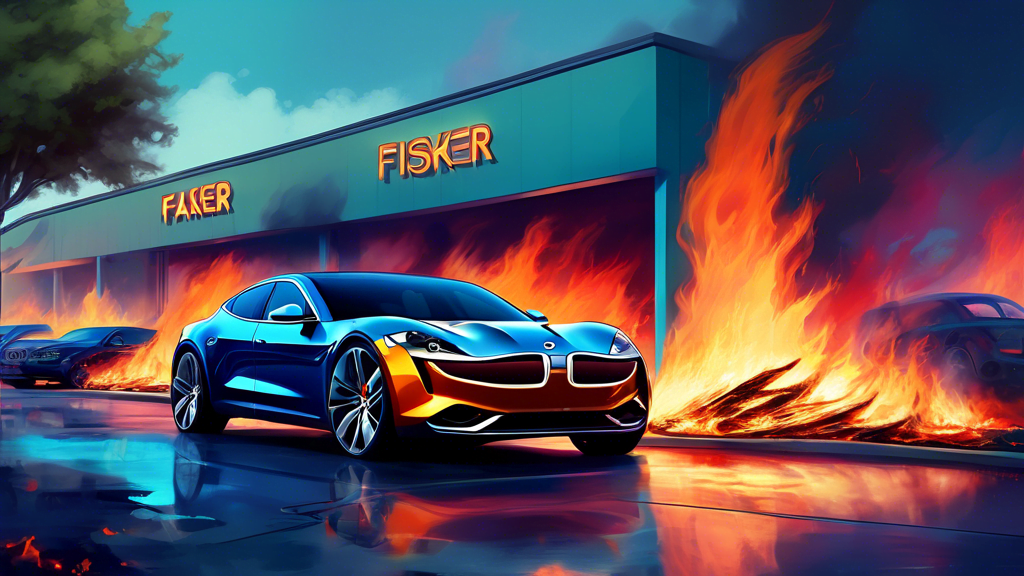A Significant Obstacle Stands in the Way of Fisker’s Ocean SUV Firesale
Electric vehicle startup Fisker has generated considerable buzz with its Ocean SUV, a sleek and stylish contender in the rapidly growing EV market. Positioned as a more affordable alternative to luxury electric SUVs, the Ocean has garnered thousands of pre-orders. However, a significant obstacle stands in the way of Fisker delivering on its promises and achieving widespread market penetration: production.
Production Delays Cast a Shadow on Ambitions
Fisker’s original production timeline aimed for a late 2022 launch. However, that target has been repeatedly pushed back. Supply chain disruptions, a common woe for the automotive industry in recent years, have plagued the company. Sourcing crucial components, particularly batteries, has proven more difficult and expensive than anticipated.
These delays have consequences. Firstly, they erode customer trust. Potential buyers, initially attracted to the Ocean’s design and promised features, are left in limbo, uncertain about delivery dates. This uncertainty can lead to cancellations and a shift towards competitors who have navigated the supply chain challenges more effectively.
Secondly, delays impact Fisker’s financial standing. Every month without production translates to lost revenue and mounting costs. While Fisker has secured some funding, the longer the delays persist, the more pressure mounts to secure additional capital, potentially diluting early investors or forcing the company into unfavorable financial agreements.
The Firesale Narrative: Hype or Reality?
Whispers of a potential firesale have begun to circulate in some corners of the automotive world. This speculation stems from the production challenges and the mounting pressure on Fisker to generate revenue. A firesale, in this context, would likely involve selling the Ocean SUV at or below cost to generate cash flow quickly.
However, several factors make a firesale scenario unlikely, at least in the immediate future. Firstly, Fisker still holds a significant number of pre-orders. While some customers may have canceled due to delays, there remains a pool of interested buyers willing to wait for the Ocean.
Secondly, a firesale would significantly damage Fisker’s brand image. Positioning itself as a premium EV maker selling vehicles at a loss would contradict its initial marketing and potentially deter future customers who associate low prices with compromised quality.
Finally, Fisker still has other avenues to explore before resorting to a firesale. The company could secure additional funding from investors, form strategic partnerships, or potentially even license its technology to other manufacturers.
Read Our Article on Taoping Inc. Sees 32% Revenue Surge in 2024 Driven by AI Innovations
The Path Forward: Navigating Production and Delivering on Promises
For Fisker to succeed and avoid the need for drastic measures, it needs to address its production woes head-on. This requires a multi-pronged approach:
1. Supply Chain Diversification and Security:
Relying on a single source for critical components like batteries is risky. Fisker needs to diversify its supply chain, securing agreements with multiple suppliers to mitigate disruptions and ensure a steady flow of parts.
2. Transparency and Communication:
Open and honest communication with customers is paramount. Fisker needs to provide regular updates on production progress, even if the news isn’t always positive. This transparency can help rebuild trust and manage expectations.
3. Strategic Partnerships:
Collaborating with established automakers or technology companies could provide Fisker with access to manufacturing expertise, supply chain networks, and potentially even additional funding.
4. Focus on Innovation and Differentiation:
While resolving production issues is crucial, Fisker cannot afford to lose sight of innovation. Continuously improving the Ocean’s technology, range, and features will be essential to stay competitive in the rapidly evolving EV market.
The Stakes are High:
The electric vehicle market is becoming increasingly competitive, with established automakers and new startups vying for market share. Fisker’s Ocean SUV has the potential to be a compelling offering, but its success hinges on the company’s ability to overcome its production challenges and deliver a high-quality product to customers. Whether Fisker can navigate these obstacles and establish itself as a major player in the EV landscape remains to be seen, but the stakes are undeniably high.
